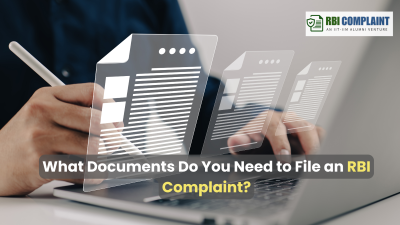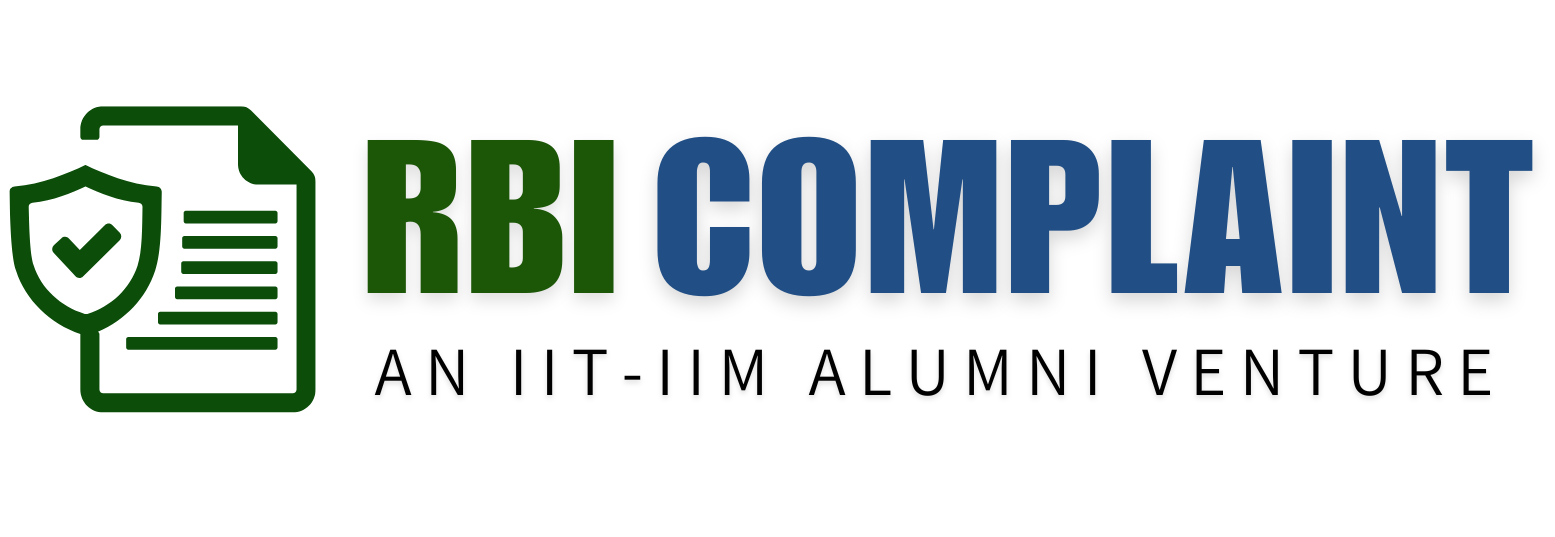· RBI Complaint Services · 4 min read
What Documents Do You Need to File an RBI Complaint?
Find out the essential documents required to file an RBI complaint. Ensure your banking grievance process is smooth with the right paperwork.

When filing a complaint with the Reserve Bank of India (RBI), it is essential to provide specific documents to support your claim. The documents you need may vary depending on the nature of the complaint, but generally, the following are required:
1. Complaint Letter
A detailed complaint letter or application explaining the issue with the financial institution.
Include relevant information such as the date of the incident, your account details, and a clear description of the problem.
2. Bank/Financial Institution Correspondence
Copies of all correspondence with the bank or financial institution, including emails, letters, and responses from customer service.
Proof that you tried to resolve the issue with the institution before approaching the RBI.
3. Transaction Details
Bank statements or transaction records related to the complaint.
Any receipts, payment confirmation, or invoices related to the disputed transaction.
4. Identity Proof
- A copy of a government-issued identity document (Aadhaar card, passport, PAN card, etc.) to verify your identity.
5. Supporting Evidence
Any other supporting documents that can help prove your claim. For instance:
Loan or credit card agreements.
Terms and conditions provided by the bank.
Screenshots or images of the issue if applicable.
6. Authorization (If Filed by a Representative)
- If someone is filing the complaint on your behalf, provide an authorization letter and a copy of their identity proof.
7. Grievance Number
- If you filed a complaint through the institution’s internal grievance redressal system, include the grievance number or reference number provided by the bank.
After collecting these documents, you can submit the complaint through the RBI’s Complaint Management System (CMS) online, or send them via mail to the appropriate RBI office.
8. Legal Documents (if applicable)
- If the complaint involves legal matters, such as recovery of funds from fraud or unauthorized transactions, provide copies of any police reports, FIRs (First Information Reports), or legal notices issued to the bank or financial institution.
9. Power of Attorney (if applicable)
- In cases where you are unable to file the complaint personally (due to health issues or other reasons), a power of attorney document may be needed if a legal representative is acting on your behalf.
10. Affidavit (in certain cases)
- In some cases, you may need to submit an affidavit to verify the authenticity of your claim. This is typically required in complex disputes involving large sums of money or severe breaches of contract.
Filing the Complaint through RBI’s CMS Portal
You can file your complaint online through the RBI’s Complaint Management System (CMS). This portal is designed to handle grievances related to various financial institutions regulated by the RBI, such as:
Banks (including public and private sector banks)
Non-banking Financial Companies (NBFCs)
Payment and Settlement System operators
The portal will guide you through the process of filing the complaint, and you will be able to upload the required documents directly.
Steps to File a Complaint Online:
Visit the RBI’s CMS portal: CMS RBI
Select the type of institution you want to file a complaint against.
Enter your personal and account-related details.
Describe the nature of your complaint in detail.
Upload all supporting documents (e.g., identity proof, transaction details, correspondence with the bank, etc.).
Submit the complaint and note down the complaint reference number for future tracking.
After Filing the Complaint
Acknowledgment: You will receive an acknowledgment of your complaint along with a reference number. This number can be used to track the status of your complaint.
Processing Time: The RBI usually takes about 30 days to review and act on a complaint, although the timeframe may vary depending on the complexity of the issue.
Response: The RBI will contact the financial institution involved, and the institution is required to respond within a specified time. If your complaint is valid, the institution will have to provide a resolution, and you will be informed of the outcome.
Alternative Channels for Filing Complaints
RBI Ombudsman: For unresolved disputes or dissatisfaction with the response from the financial institution, you can escalate the issue to the Banking Ombudsman (an RBI official appointed to handle complaints).
Physical Submission: Complaints can also be mailed to the regional office of the RBI that handles complaints for your area. Make sure to include all supporting documents.
By ensuring that you submit all the required documents and follow the appropriate procedures, you can significantly improve the chances of your complaint being resolved efficiently.



